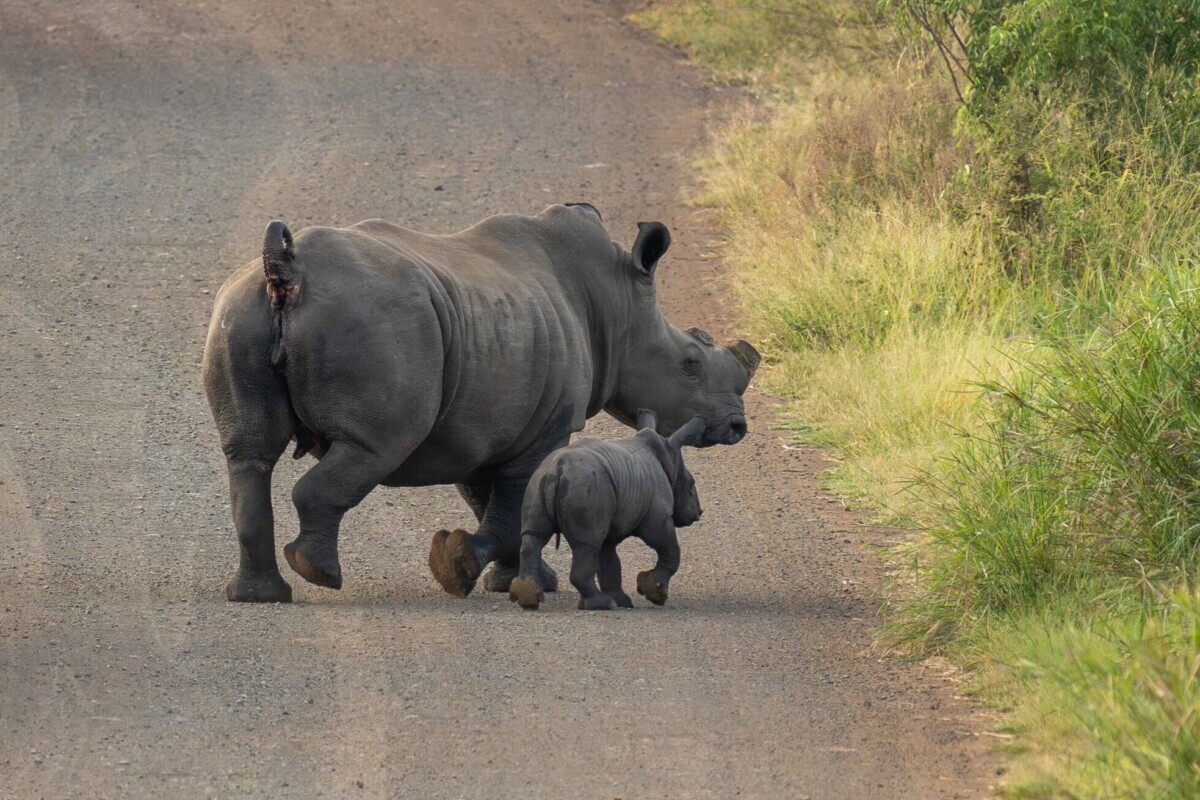Poaching has decimated rhino populations across Africa, but a new study finds that dehorning the animals, or surgically removing their horns, drastically reduces poaching. The study focused on 11 reserves in the Greater Kruger ecosystem that sprawls across the border of South Africa and Mozambique. Poachers killed nearly 2,000 rhinos here, 6.5% of the reserves’ population, from 2017-2023, reducing populations of both black (Diceros bicornis) and white (Ceratotherium simum) rhinos, according to Tim Kuiper, study lead and conservation scientist at Nelson Mandela University. Poachers target rhinos for their keratin horns, incorrectly believed in traditional Asian medicine to hold medicinal properties. To deter poachers, many African reserves have tried dehorning, a procedure where veterinarians tranquilize rhinos and saw off their horns, leaving only a stump behind. In eight of the 11 reserves the study examined, park authorities and researchers (some involved in the study) have dehorned rhinos in batches since 2017. This allowed the researchers to compare the impact of dehorning on poaching rates over time, against the three reserves where rhinos weren’t dehorned, and against conventional measures implemented prior to dehorning. The study found a 78% reduction in poaching rates in the parks after dehorning — and it was cost-effective, too. From 2017-2023, the reserves spent $74 million on antipoaching measures, including rangers, tracking dogs, cameras, better fences and access control. But dehorning accounted for just 1.2% of the budget, the study found. “So, it’s very clear that our study demonstrated massive declines in poaching in response to dehorning,” Kuiper…This article was originally published on Mongabay
From Conservation news via this RSS feed


